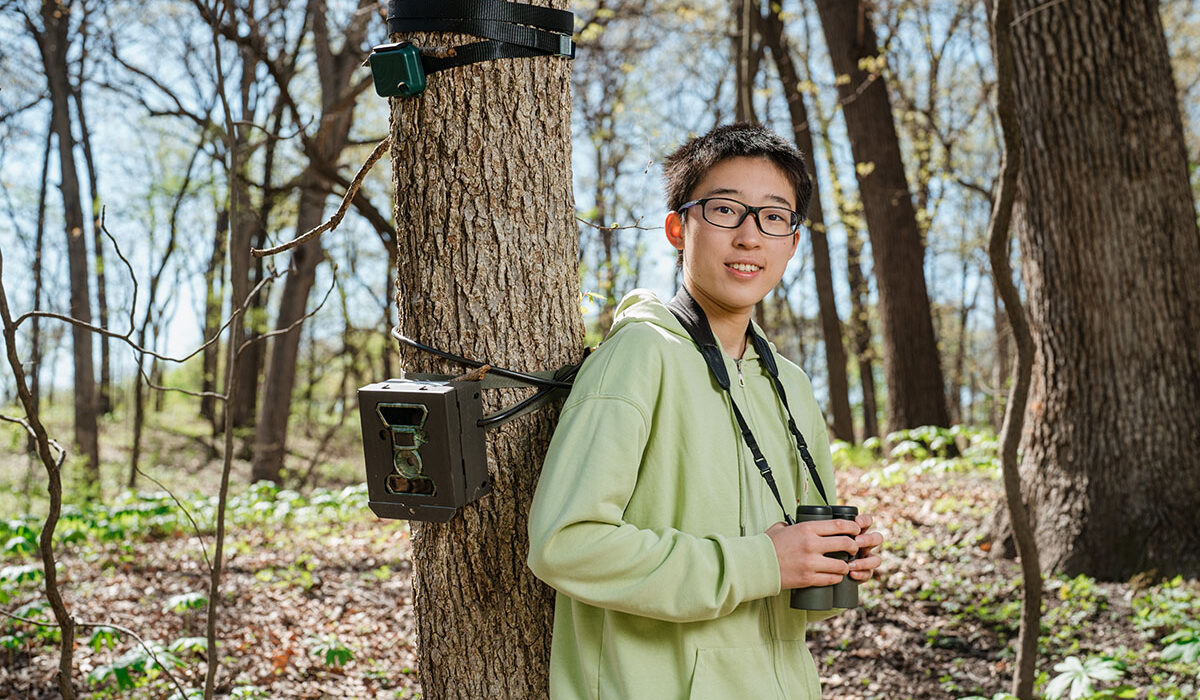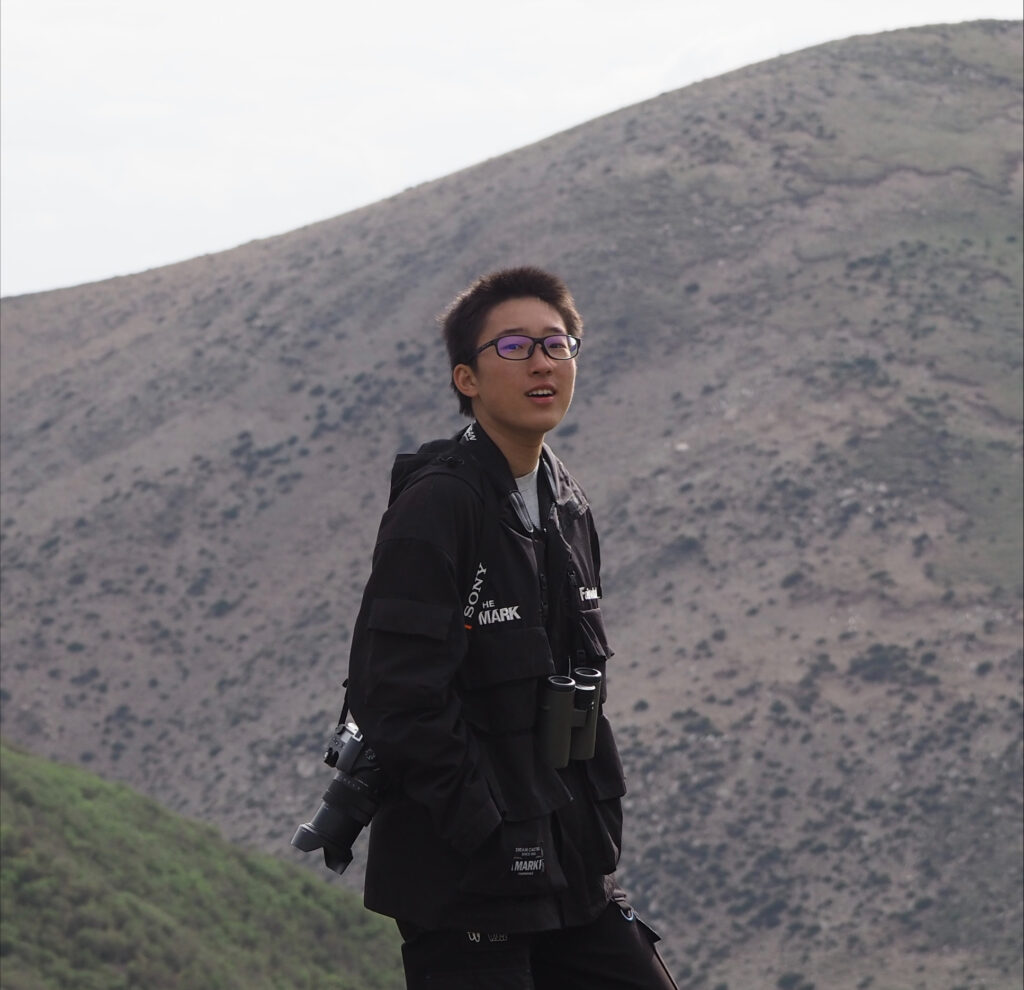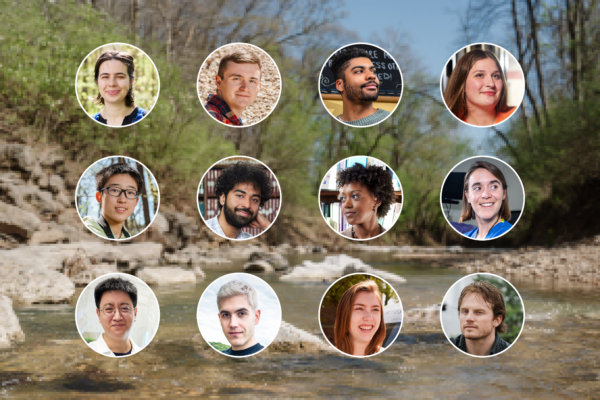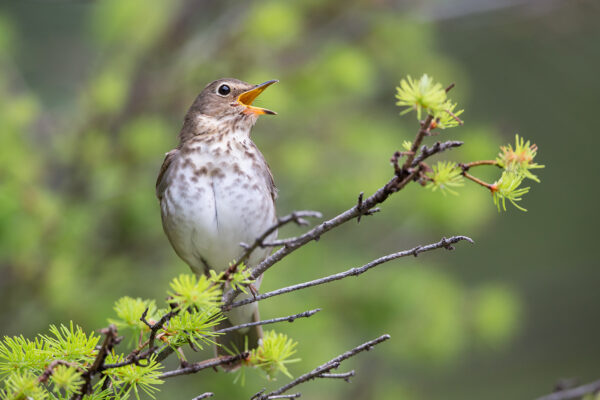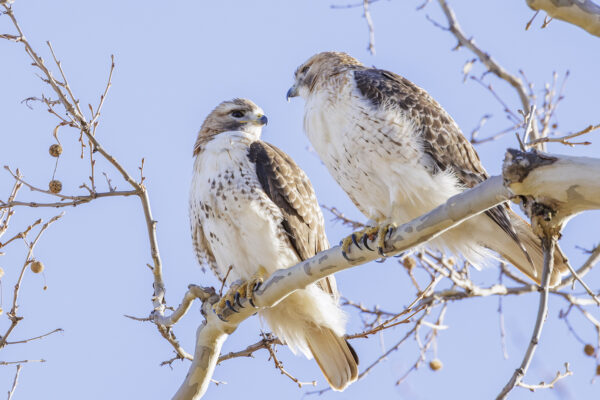If you want to see Yunfeng Ge’s face light up with joy, just ask about her love of birds and nature. A native of China, she was excited to explore all that Washington University in St. Louis’ biology program had to offer.
Unfortunately, the pandemic delayed her on-campus experience, but Ge hit the ground running her sophomore year. She sought after opportunities on campus to develop friendships and get involved in research.
“I want to emphasize the diverse research experience,” Ge said. “I don’t think every university has as many opportunities to get involved in research or a lab. I found my first lab by simply emailing a professor. The professors are really nice and care about students.”
As Ge prepares for life after graduating this month with a bachelor’s degree in biology from Arts & Sciences, she will take a gap year and return to China and do conservation work for nongovernmental organizations. She plans to apply to graduate school to study ecology and evolution.
Here, Ge reflects on what she has learned and the research and volunteer work she completed during her time at WashU.
What were your favorite biology classes?
One of them is called “Field Methods for Environmental Science,” taught by Doug Ladd. We would go on field trips every Friday and learn different field techniques for environmental science. We also learned about conservation ranging from animals to insects and mammals and different ecosystems like rivers and forests.
I also loved the “Behavioral Ecology” class, taught by my mentor, Joan Strassmann. It’s a very different class setting. We did readings in class and had discussions. The big assignment for that class was for each student to write two Wikipedia pages. Wikipedia sometimes is not really scientifically accurate, but we made sure that we cited literature and to make it reliable. That’s so much better than just writing a thesis or a paper for class. We were really contributing to the science world.
You are the founder and president of the WashU Bird Club. What has the club been able to accomplish?
I’m a very passionate birder. When I came to WashU, I realized there wasn’t a community for lovers of birding. I met another birder during a class, and we decided to start this club and it’s been pretty successful, in different kinds of ways. First of all, we created a place for birders at WashU. We also take weekend birding trips to Forest Park and Riverlands Migratory Bird Sanctuary during the semester. We’ve invited speakers and professors to give talks about their research.
We’re also doing conservation work. We started to notice there are bird and window collisions at some glass buildings on campus. It’s really easy, especially during migration seasons, for birds to collide into the windows and die. So we started doing monitoring as of spring-fall 2021. We created a Google form and people on campus can report the bird, so that we will know where the hotspot of bird collisions is.
What was your experience like as an undergraduate fellow at the Tyson Research Center?
I’ve gotten involved in all kinds of biodiversity research. When you work in the lab, you just work on one thing, but at Tyson there are all kinds of professors working on all kinds of different things. As a fellow there, I got involved in tick sampling and tick classification. I collected ticks in the field and used a microscope in the lab to identify the species based on some diagnostic keys.
I’ve also helped with wildlife monitoring in general. We have infrared deer cameras at Tyson, and every winter we set up cameras there. We did a national project looking at vegetation covers and different kinds of environmental variables affecting the breeding behaviors of amphibians like salamanders. I’ve also been involved in general vegetation surveys and insect surveys and also bird counting surveys.
